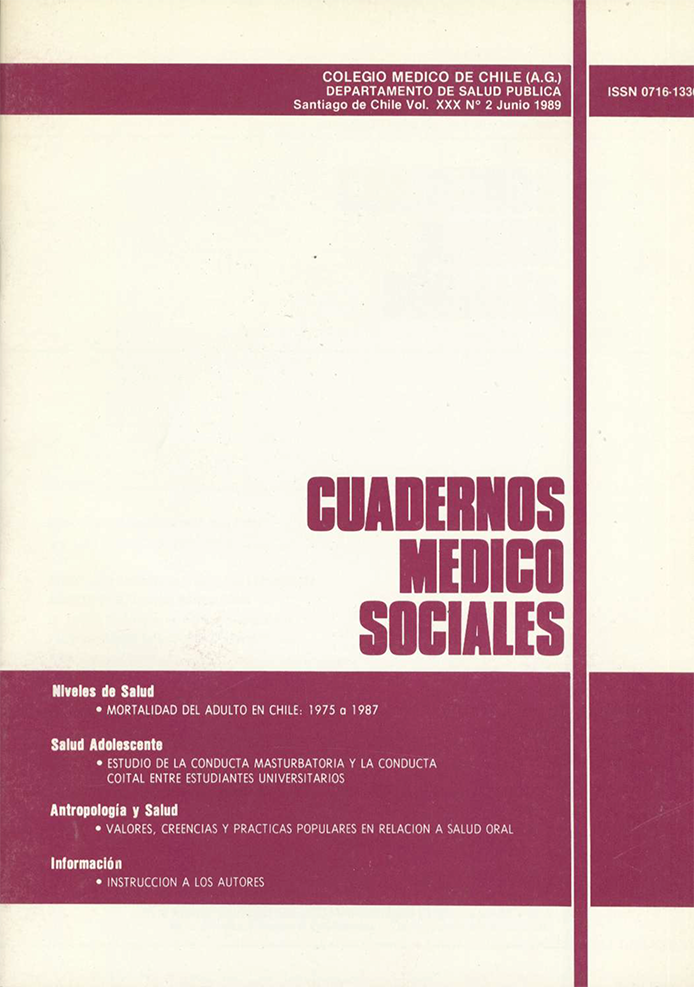Valores, creencias y prácticas populares en relación a la salud oral
Keywords:
Oral Health, Chile, EducationAbstract
This study aimes at increasing knowledge on the cultural patterns associated with oral health, pre- vailing in low socioeconomical populations. The qualitative analysis of the data allowed inferences on the values and body of beliefs that frame the oral health selfcare behaviors. Among these behaviors, oral hygiene does not constitute a daily practice. Predominant beliefs on the factors that influence the quality of teeth are: inheritance, pregnancy, the age of temporary teeth eruption, antibiotics ingestion, and "bad” nourishment.The population attributes to sugary foods a destructive effects on teeth, but this effect is associated only with the action of chewing hard candies. A high per- centage of the population perceives gum bleeding as normal during tooth brushing. Only 8% recognize baa oral hygiene as the main cause. The managent of the health sickness situation is limited to solve problems in which pain appears as the action inducer factor. The first resource utilized is automedication, throught a combination of drugs and herbs. The negative way in which the population perceives the dental services, significately conditions the decrease in demands for therapeutic actions.
Downloads
Downloads
Published
How to Cite
Issue
Section
License

This work is licensed under a Creative Commons Attribution-NonCommercial-ShareAlike 4.0 International License.


